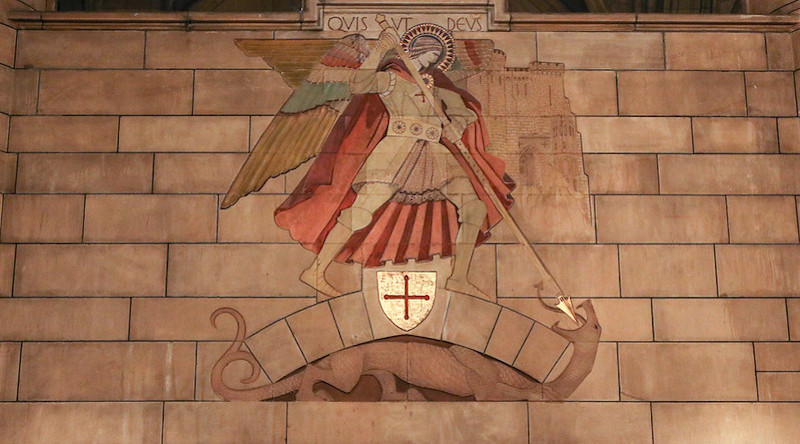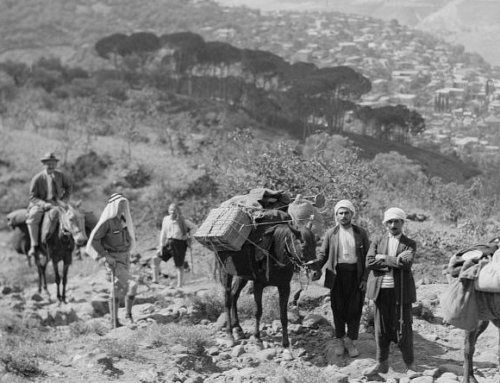When was the last time your cashier wished you a Happy Michaelmas?
In this case, I think it’s safe to bet: never. It’s hard to even imagine that the Feast of Saint Michael the Archangel was once popular enough to merit its own special name—alongside other such greats as Christmas, Candlemas, and Martinmas.
Perhaps the reason for this dearth of holiday spirit is that we no longer celebrate the Feast of St. Michael liturgically. Since the 1970s, we’ve combined the three separate feasts of Michael, Raphael, and Gabriel into one big Feast of the Archangels. But this fact only corroborates my point: While angels still populate the Catholic imagination—just think of the cherubs surrounding a creche, or a guardian angel at a child’s bedside—there is little real piety or devotion shown to these powerful servants and ministers of God.
This seems strange. The natural human tendency, as we see throughout Scripture (e.g., Rev 22:8-9), is to fall into the opposite extreme, to mistakenly worship angels as some kind of minor deity. This strangeness is even further compounded by the rise of interest in demonic activity. A healthy, non-curious awareness of the role God has allowed demons to play in tempting us is good, but it’s a problem that it’s not accompanied and surpassed by an increase in devotion to the very angelic persons God created to aid us in this struggle here below.
Yet, there are signs that our holiday spirit might be returning. Many dioceses and parishes, for instance, have taken up the practice of reciting the St. Michael prayer following Mass. While a good sign, this particular devotion only focuses on the fact that angels help us in combating demonic activity. The role God has given the angels, however, is much more extensive than this. Throughout the Scriptures, angels are referred to collectively as a royal, heavenly court. God is king, and the angels are his ministers. In other words, angels are the ones who serve God by carrying out his will in creation. They are the ones through whom the king—God—governs his kingdom—creation (ST I, q. 103, a. 6; q. 110).
Scripture is full of accounts that confirm this image. For example, not only is the act of casting out the devil from heaven attributed to St. Michael (Rev 12:7-9), he is also revealed as the one who has special care over Israel, like a guardian angel of the whole nation (Dan 10:12-21). Saint Raphael features as one of the main characters in the Book of Tobit, illustrating how angels are sent by God to fulfill the prayers of the faithful (see Tob 3:17). And Saint Gabriel has the function of a messenger, one sent to announce God’s plan to human beings (Dan 8:15-17; 9:20-22; Lk 1:18-20, 25-27).
I could go on (see Gen16:9-11; Jud 13:2-4; Isa 37:35-37; Mt 4:10-12; Mt 28:4-6; and Acts 5:18-20 just to list a few), but the bottom line is this: angels do much more for our good than we will ever know this side of heaven. We ought, therefore, to thank our angelic benefactors frequently and to ask them for assistance in times of need. This could be as simple as saying a quick prayer, e.g., the “Angel of God” or the “Litany of the Holy Angels” for some particular need. It could also include celebrating their feasts, keeping certain days in their honor, or saying a novena, like this one. Above all, we should give glory and praise to God by celebrating all the good things, great and small alike, that he has worked through the angels.
Let me be the first, then, to wish you a Blessed and Very Happy Michaelmas!
✠
Photo by Fr. Lawrence Lew, OP







